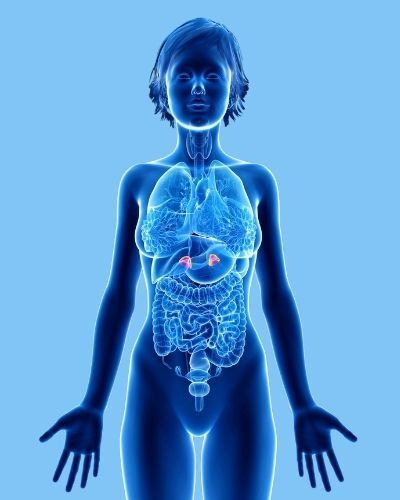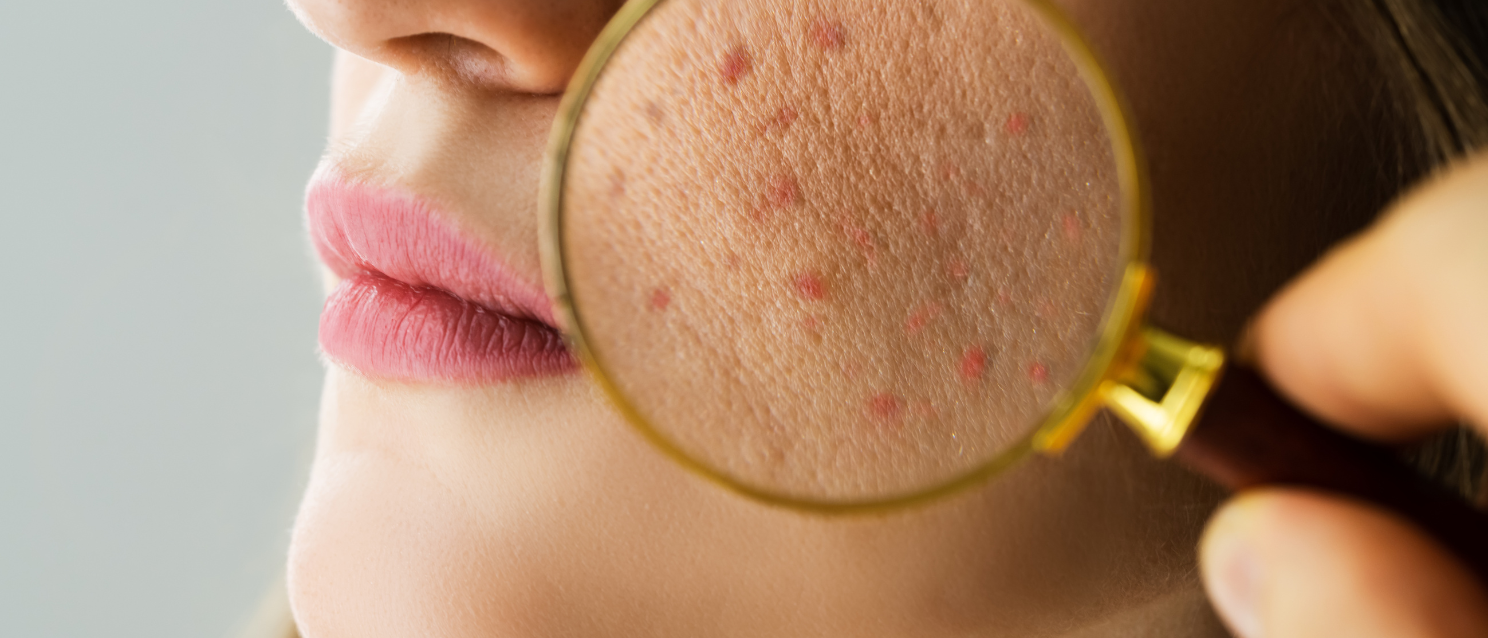Adrenal Glands -Recognising the 3 Stages of Adrenal Stress
You might have heard of adrenal stress or adrenal fatigue, but what do these terms mean?
When we are under prolonged stress, whether that's external stressors or dietary/lifestyle stress we put on our bodies, our adrenal glands have to work hard to keep producing cortisol, and depending on the amount of stress, the duration, and the body's ability to manage the stress, the adrenals can become ‘fatigued’. What is commonly referred to as “Adrenal Fatigue” is often describing Adrenal insufficiency, a condition in which the adrenal glands do not produce adequate amounts of steroid hormones, primarily cortisol or sometimes Addison’s disease.
Head to our blog here to read about Stress, Hormones and the HPA Axis.
What are the Adrenal Glands?
The adrenal glands are located just above your kidneys, which are in the middle of your lower back area. These glands are responsible for secreting different hormones which act as 'chemical messengers'. These hormones travel in the bloodstream and act on various body tissues allowing them to function.
In response to stressors in our life, our brain sends a message to the adrenals, getting them to spring into action to protect the body by activating the fight or flight stress response.
The adrenals begin to secrete hormones including adrenaline, noradrenaline and cortisol to gear the body up for action. This response can be life saving in the short term but chronic or persistent, long term stress disturbs the physiological equilibrium which can contribute to hormone imbalance, immune suppression, depression and chronic fatigue.

Stages of Adrenal Fatigue
Lifestyle, physical and psychological stressors put constant demands on the adrenal glands. The health of the adrenal glands will determine how effectively the body can respond to stress, and importantly, how effectively you can return to a state of calm or relaxation after stress. For many of us in this modern world, there are so many stressors everyday that the adrenal glands don’t get a break!
There are three stages of adrenal stress that can be identified as the adrenals become more fatigued and their ability to function begins to affect other systems in the body.
Stage 1 - Acute
Acute adrenal stress sees elevated cortisol and DHEA levels increased and looks like being wired and tired. Your body is in the stress response, with hyper-focussed attention, heart pumping, fast breathing rate, muscle tension and energy - you’re ready to run or fight to survive the immediate threat to your safety.
Stage 2 - Adaptive
When the adrenals are having to work overtime for a period of time, they will adapt to this heightened level of stress and continue pumping cortisol, but the DHEA levels will now be lowered and overall you’ll feel less energetic. You might start to feel tired more often, have trouble concentrating, and this can even lead to feelings of irritability, trouble sleeping and may notice other health problems developing.
Stage 3 - Exhaustion
By this stage, it's an effort to get out of bed, and you're likely reaching for coffee, chocolate and sugary foods to lift your energy. The adrenals are struggling to produce the cortisol and DHEA required and this has flow on effects to other hormones. For example, the body will begin repurposing progesterone and converting this into cortisol. This of course means that the body’s progesterone levels drop which then impacts the estrogen balance, and you can see how this can affect mood and energy.
When we identify adrenal stress in the early stages, it can help to prevent more serious health problems from developing.
What can you do to Support Your Adrenal Health?
If you're experiencing any of the symptoms mentioned above, it's worth getting some testing done to determine the function of your adrenal glands. We do this by undertaking an adrenal hormone profile saliva test which is a reliable marker of the body’s stress response and a critical tool for revealing adrenal imbalances by measuring the levels of the body's Cortisol and DHEA hormones. The results of this testing, together with your symptomology and lifestyle factors, allows us to put together the complex picture of what is happening at a physiological level.
Each individual will have unique lifestyle and physiological factors, and the potential treatment for adrenal fatigue will be focussed on building up the strength of the adrenals with dietary changes, nutritional supplementation and herbal remedies, relaxation techniques, massage, acupuncture, etc to help restore the body’s balance.
General tips to Support your Adrenal Glands day to day
Avoid stimulants - instead of reaching for that second cup of coffee or soft drink try taking some great tasting vitamin C powder in sparkling mineral water, a great pick-me-up.
Eat foods rich in B group vitamins, Magnesium and Potassium - these include salads, fresh fruits, vegetable juices, sprouts, raw nuts and seeds, rice and oat bran.
Avoid processed sugar - Instead of going for a sugary snack, have a medjool date or a piece of fruit with a small handful of nuts.
Eat regularly - have snacks between meals to prevent blood sugar drops that can reduce your energy and concentration and cause adrenal surges (feeling jittery, nervous, aggression, anxiety or panic attacks.)
Avoid drinking alcohol - Alcohol can often be associated with relaxing however it is a stimulant and especially in the evening, will negatively affect the quality of your sleep.
walnuts, cashews and peanuts), spinach, quinoa, dark chocolate.
Importantly, the body has a powerful ability to heal itself and bring systems back into balance when it has the right conditions to do so. The healthy function of the adrenal glands cannot be restored when they are constantly being stimulated into a stress response. Reducing the stressors in your life where possible, and finding ways to better manage stress are important strategies together with the dietary tips listed above to support your adrenal health.
Lesley Oakes
ND, ABAAHP
Lesley is a Naturopath and board certified Anti-Ageing Health Practitioner with the Australian Academy of Anti-Ageing Medicine. Lesley is also Australia’s first Naturopath to achieve board certification from the American Academy of Anti-Ageing Medicine, is a Fellow of the Australian Natural Therapists Association and a qualified Thyroflex Technician.









